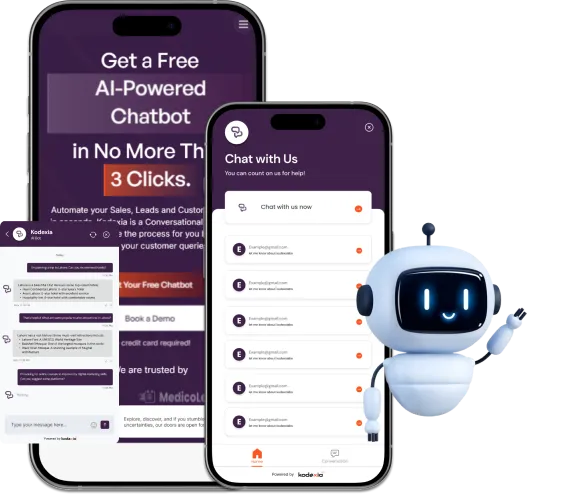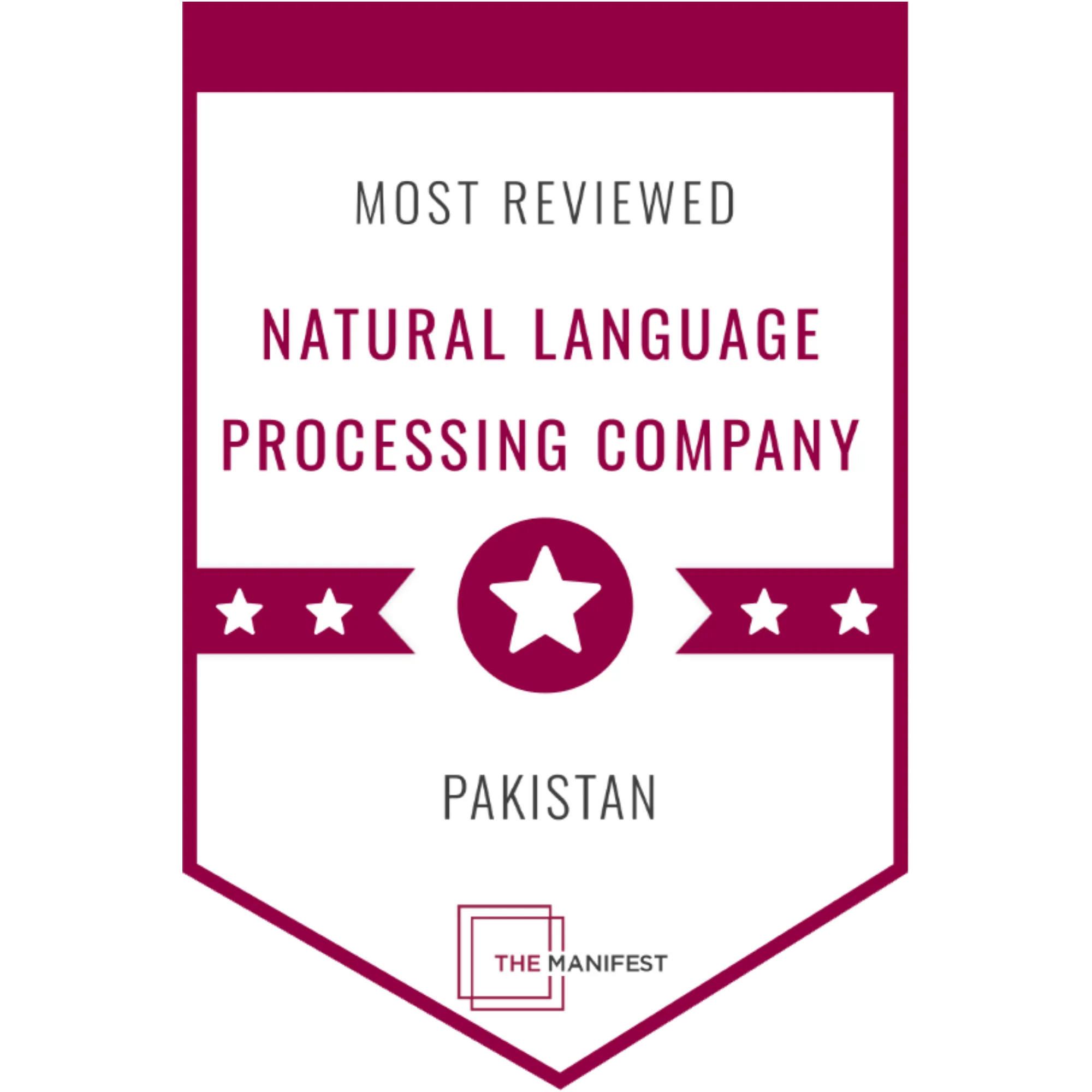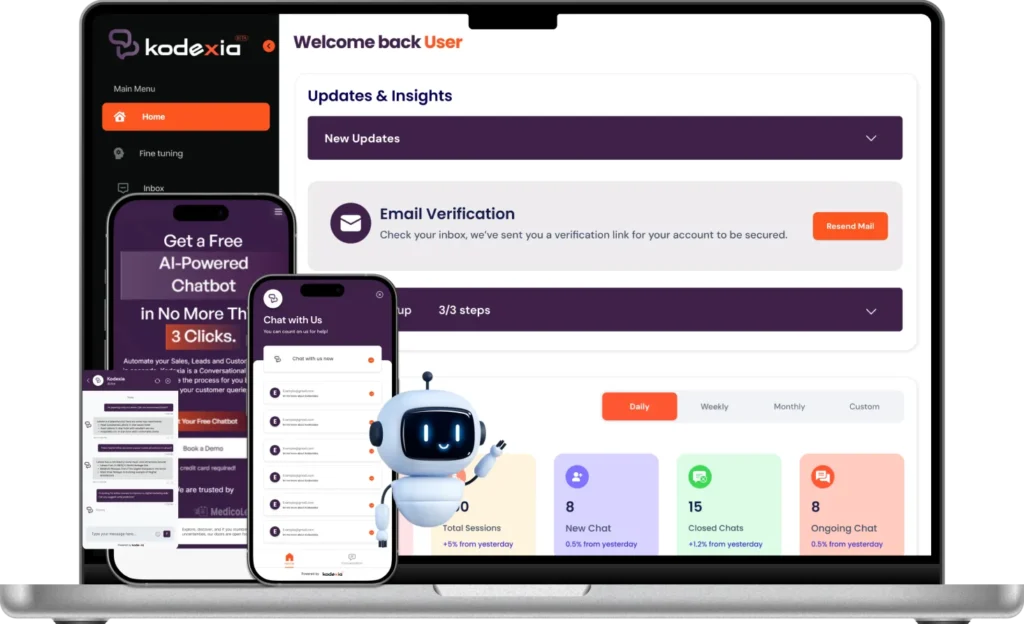Generative AI Integration for Social Media Marketing: Role of AI in Digital Marketing

Contents
The incorporation of Generative AI in digital marketing has caused a paradigm change in the rapidly changing field of digital marketing, bringing with it a revolutionary era characterized by previously unimaginable opportunities and challenging problems.
We’ll explore the complexities of generative AI, its essential function in social media marketing, automated content creation, visual content marketing, and the wider ramifications of AI in digital marketing in this blog.
Definition of Generative AI
At the very edge of artificial intelligence is generative AI, which uses algorithms to produce unique and realistic content, be it automated content creation or content for visual content marketing. Unlike traditional AI in digital marketing, generative models demonstrate a distinct capacity to produce data, including visual content marketing, text, images, and multimedia, replicating the subtleties of human-like creativity.
This capacity opens the door for creative applications in a variety of fields such as automated content creation and is firmly anchored in the complex workings of neural networks and machine learning techniques.

Overview of Social Media Marketing
Social media marketing is now a vital component of digital advertising, rather than just an auxiliary tool. Social media sites like Facebook, Instagram, and Twitter have competitive arenas where brands fight for the interest and allegiance of their intended consumer base.
Creating effective marketing campaigns (digital marketing or visual content marketing) requires an understanding of how dynamic these platforms are. In addition to giving access to a large audience, social media is a rich data source that, when combined with AI in digital marketing, may significantly enhance marketing campaigns and improve automated content creation.
What is Social Media Integration
What is Social Media integration? The answer is simple. Social media integration is the seamless incorporation of social media elements into various aspects of a business’s online presence.
Now if someone asks “What is social media integration?” Here’s your answer. Below we’re discussing the answer to what is social media integration:
What do we do?
What is social media integration? Social Media integration involves embedding social media feeds on websites, integrating social sharing buttons, and creating a cohesive brand presence across different social platforms.
What is the Social Media Integration goal?
Since we have a complete understanding of what is social media integration. Now, we must know its final goal. The goal of social media integration is to enhance user engagement, amplify brand visibility, and foster a sense of community. Social media integration is crucial in contemporary digital ecosystems where social platforms serve as key touchpoints for audience interaction and brand communication.

AI in Digital Marketing
AI in digital marketing is transformative, encompassing a wide array of applications. From personalized user experiences to data analysis, AI in digital marketing optimizes marketing strategies in unprecedented ways. AI and Machine learning algorithms analyze consumer behavior, enabling personalized content recommendations.
Chatbots powered by AI in digital marketing enhance customer interactions, providing instant support. Predictive analytics through AI in digital marketing helps forecast trends and automated reporting provides real-time insights. AI in digital marketing can process vast datasets and derive actionable insights is reshaping how businesses approach marketing, making it more data-driven, personalized, and efficient.
Significance of AI in Digital Marketing
AI technologies, particularly the potent powers of Generative AI, which provide marketers the ability to analyze large datasets, customize user experiences, and automate several campaign tasks, underscore the larger significance of AI in Digital Marketing.
This helps organizations stay competitive in an increasingly crowded digital market while also improving operational efficiency. To keep aware of the constantly changing preferences of consumers and navigate the complexity of modern marketing, it is imperative to strategic AI integration.
Applications of Generative AI in Social Media Marketing
Content Creation
- Automated Content Creation
Automated content creation is a revolutionary approach that utilizes technology, often powered by artificial intelligence, to generate textual and visual content without manual intervention. The effective strategy of automated content creation streamlines content production processes, saving time and resources.
Automated content creation tools can generate blog posts, social media updates, and even visual assets, allowing marketers to focus on strategy and creativity rather than routine, time-consuming tasks.
- Automated Content Creation: Image and Video
With the automated content creation of photos and videos, generative AI in digital marketing has completely changed visual content marketing and the automated content creation process. These systems can create visually appealing material that adheres to brand aesthetics by utilizing neural networks.
For example, generative models can be used by a fashion firm to generate original designs, guaranteeing their audience will always see interesting images. Automated Content Creation not only speeds up the process of creating material but also creates opportunities for originality and innovation.
- Copywriting Assistance
By extending its skills, generative AI in digital marketing can help with copywriting. These models are capable of producing logical and contextually appropriate written content by examining patterns in the available textual data. For social media marketers looking to keep their brand voice consistent and compelling, this is important.
Generative AI helps to improve the overall quality of textual pieces in marketing campaigns and expedites the process of creating engaging headlines, compelling captions, and even full articles.
Personalization
- Customized User Experiences
A key factor in customizing user experiences on social media sites is generative AI. These models learn from user behavior, preferences, and interactions to dynamically customize content feeds.
To create a more personalized and engaging experience, a streaming service could, for example, use generative algorithms to suggest material based on a user’s viewing history. Users are more satisfied and loyal when brands and consumers have closer ties as a result of this level of customization.
- Targeted Advertising
Generative AI produces material that appeals to particular audience segments, improving the accuracy of targeted advertising. These models can produce ads that have a higher chance of grabbing attention and converting viewers since they can comprehend the subtleties of customer behavior and preferences.
With material catered to their interests and demographics, marketing messages are sent to the correct audience with maximum effectiveness thanks to this focused strategy.
Chatbots and Customer Interaction
- AI-driven Customer Service
AI Chatbots is a useful application of generative AI for automating customer service. With the help of sophisticated natural language processing tools, these bots can comprehend and react to user queries instantly.
Users receive rapid support from this, and it also frees up human resources for more difficult jobs. Companies can boost customer satisfaction by guaranteeing constant availability and a consistent customer care experience.
What is AI Image Generation
AI image generation involves the use of advanced algorithms, notably Generative Adversarial Networks (GANs). These algorithms consist of two neural networks – a generator and a discriminator – that are trained on vast datasets.
- How does AI Image Generation work?
The generator creates images, and the discriminator evaluates their realism. This adversarial process continues until the generator produces images that are indistinguishable from real ones.
- AI Image Generation in Digital Marketing
In digital marketing, AI image generation automates the creation of visuals for campaigns, websites, and social media, providing a scalable and efficient solution for content production.
Well, now we have a complete answer to “How does AI image generation work?”.
Visual Content Marketing
What is Visual Content Marketing
Visual content marketing involves strategically using images, videos, and other visual elements to convey messages and engage with the audience. It’s a dynamic approach to storytelling that leverages the power of visuals to communicate brand messages effectively.
Advantage of Visual Content Marketing
In today’s digital landscape, where attention spans are short and competition for consumer attention is fierce, visual content marketing has become a cornerstone strategy for brands looking to stand out and connect with their audience on a deeper, more emotive level.
Challenges and Ethical Considerations
Potential Bias in AI-generated Content
The possibility of bias in AI-generated content is one of the major issues with integrating generative AI in social media marketing or visual content marketing. Any biases in the training data may be carried over into the generated outputs because these algorithms learn from preexisting data.
Addressing this challenge requires a meticulous examination of training data and the implementation of strategies to mitigate biases, ensuring that AI-generated content aligns with ethical standards.
Data Privacy Concerns
NLP is the backbone of AI chatbot development and virtual assistants like Siri, Alexa, and Google Assistant. These tools leverage NLP to understand and respond to user queries in natural language. By answering the question, “What is natural language processing?”, one realises that NLP enables these assistants to provide relevant information, perform tasks, and even engage in small talk, making them indispensable tools for customer service and personal assistance.
Transparency and Accountability
Transparency and accountability are hampered by the generative AI models’ intrinsic complexity. It can be difficult to understand how these models make particular judgments or produce information. A lack of trust can result from a lack of openness, particularly when artificial intelligence is used in important decision-making processes.
To overcome this obstacle, marketers must be dedicated to openness and work to explain how AI systems work. Furthermore, it’s critical to have distinct lines of accountability so that any inadvertent outcomes or moral failings can be identified and corrected.
AI's Role in Data Analysis and Decision-Making
Predictive Analytics
- Consumer Behavior Forecasting
Predictive analytics relies heavily on generative AI, especially when predicting customer behavior. Through the examination of extensive datasets containing past customer contacts, purchasing histories, and demographic data, artificial intelligence algorithms can identify underlying patterns and forecast future consumer behavior.
This gives advertisers the ability to foresee changes in consumer preferences, enabling proactive and focused marketing campaigns. Predictive data analytics, for example, can be used by an e-commerce platform to determine which products are most likely to become popular and then optimize inventory and advertising efforts appropriately.
- Trend Analysis
Artificial Intelligence makes trend analysis, a critical part of strategic decision-making, much better. Massive volumes of social media data may be sorted through by generative AI models, which can then be used to spot new trends and patterns that may elude detection through more conventional means.
By recognizing and understanding the trajectory of trends, businesses can align their marketing campaigns ensuring relevance and resonance with their target audience.
This real-time analysis enables agile responses to market dynamics, giving businesses a competitive edge.
Automated Reporting
- Real-time Analytics
The use of AI in real-time analytics made possible by automated reporting is a prime example of its contribution to data analysis. AI streamlines traditional reporting methods by offering real-time insights into critical parameters, eliminating the need for laborious human processes.
For instance, social media engagement metrics, website traffic, and campaign performance can be continuously monitored and instantly reported, allowing marketers to make data-driven decisions on the fly. This agility is essential in the fast-paced digital landscape where timely adjustments can significantly impact campaign effectiveness.
- Performance Metrics
With automated reporting, marketers may track performance KPIs and evaluate the overall effectiveness of their strategy. Click-through rates and conversion rates are only two examples of the many performance metrics that generative AI may evaluate to provide a comprehensive picture of a campaign’s efficacy.
AI frees up marketers to concentrate on strategic planning and decision-making by automating the creation and interpretation of these indicators, freeing them from the laborious task of manually analyzing data. A more effective and knowledgeable decision-making process is ensured by this move toward automated performance indicators.
Integration Strategies for Businesses
Adoption of AI Tools
The successful integration of AI into business strategies begins with the thoughtful adoption of AI tools and platforms. Companies need to identify the specific needs and objectives that AI can address within their marketing efforts.
This involves selecting tools that align with the business’s goals, whether it be automating content creation, enhancing data analysis, or optimizing customer interactions.
Adopting AI tools requires a thorough evaluation of available options, considering factors such as scalability, compatibility with existing systems, and the level of customization required for seamless integration.
Adoption of AI Platforms
Businesses should prioritize platforms that offer user-friendly interfaces and provide adequate support and training resources. The adoption process should be gradual, allowing teams to acclimate to the new tools without disrupting day-to-day operations. This phased approach ensures a smoother transition and maximizes the potential benefits of AI integration.
Training and Skill Development for Marketing Teams
Integrating AI into marketing strategies necessitates upskilling and continuous training for marketing teams. Training programs should be tailored to the specific needs of each team, ensuring that members gain practical insights into how AI can augment their roles.
Culture Adaptability
Additionally, fostering a culture of curiosity and adaptability is crucial. Marketing teams need to embrace a mindset of continuous learning to keep pace with advancements in AI technology. Encouraging collaboration between marketing and data science teams can facilitate knowledge exchange, enabling marketers to leverage AI capabilities effectively.
Cost-Benefit Analysis
Businesses must conduct a comprehensive cost-benefit analysis to gauge the potential return on investment. This analysis involves evaluating the upfront costs associated with acquiring and implementing AI tools against the anticipated long-term benefits. Costs may include licensing fees, training expenses, and any necessary infrastructure upgrades.
Conversely, the advantages include better decision-making, higher operational efficiency, and better client experiences. A thorough cost-benefit analysis must quantify these advantages using observable criteria like revenue growth, customer satisfaction ratings, and campaign performance.
Scalability of AI Integration Strategy
Moreover, businesses should consider the scalability of their AI integration strategy. Will the selected tools accommodate future growth and evolving business needs? This forward-thinking approach ensures that the investment in AI is not only justified in the present but remains sustainable as the business landscape continues to evolve
Future Trends and Innovations
Advancements in Generative AI Technology
The future of AI in social media marketing holds exciting prospects, especially in the continual advancements of Generative AI technology. As research and development in this field progress, we anticipate more sophisticated models capable of producing even more realistic and contextually aware content.
Advancements in training methodologies and the fusion of Generative AI with other emerging technologies, such as augmented reality (AR) and virtual reality (VR), may open up new dimensions for immersive and engaging social media experiences.
Potential Impact of AI on Social Media Algorithms
The role of AI in shaping social media algorithms is poised to undergo substantial evolution. Future algorithms are likely to become more adept at understanding nuanced user preferences, adapting content delivery in real time, and predicting user engagement patterns.
AI-driven algorithms will continue to prioritize content that aligns with individual interests, fostering more personalized and relevant user experiences.
AI has the potential to be extremely important in reducing problems like false information and promoting more positive online relationships. Artificial intelligence (AI) may play a key role in social media algorithms by enabling sophisticated sentiment analysis and content control.
Emerging Tools and Platforms
The future of AI in social media marketing will witness the emergence of new tools and platforms designed to enhance the efficiency and effectiveness of marketing strategies. These tools may encompass a range of functionalities, from more intuitive and user-friendly AI content creation platforms to advanced analytics tools that provide deeper insights into consumer behavior.
The future of AI in social media marketing will witness the emergence of new tools and platforms designed to enhance the efficiency and effectiveness of marketing strategies. These tools may encompass a range of functionalities, from more intuitive and user-friendly AI content creation platforms to advanced analytics tools that provide deeper insights into consumer behavior.
AI for social media marketing promises a landscape where technology not only augments creativity but also refines the ways brands connect with their audience. As these advancements unfold, businesses that remain agile, stay informed about emerging technologies, and embrace the evolving possibilities of AI will be at the forefront of shaping the next era of social media marketing.

Conclusion
Generative AI has undeniably left an indelible mark on social media marketing. Its transformative impact on content creation, personalization, and customer interaction has redefined how businesses engage with their audience. From automated image and video generation to chatbot-driven customer service, Generative AI has become a cornerstone of innovative and efficient marketing strategies.
As we conclude, the call to action for businesses is clear – embrace AI in your marketing strategies. The integration of Generative AI and other AI technologies is not a mere trend; it’s a fundamental shift in how marketing operates. Those who hesitate risk falling behind.
The future of marketing is intricately woven with AI, and businesses that proactively adopt and integrate these technologies will not only survive but thrive in the competitive and ever-changing landscape of digital marketing.

Author Bio
Read More Blogs

Llama 3.2 – A Heavy Update for a Lightweight AI Model

What is Natural Language Processing? A Comprehensive Guide for Users






















